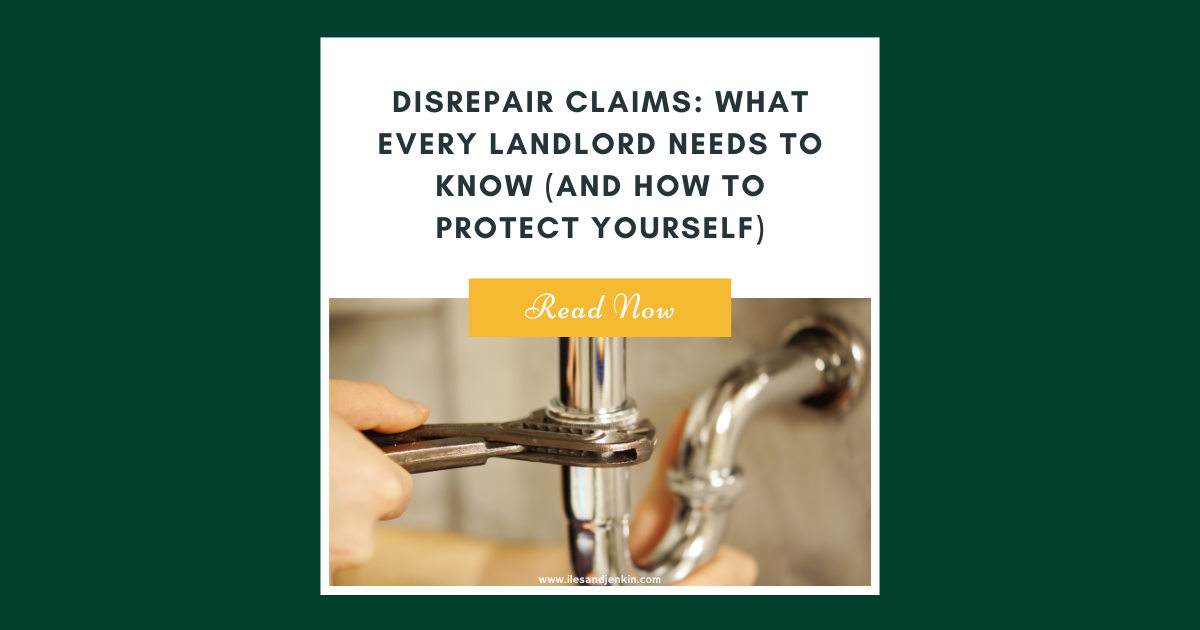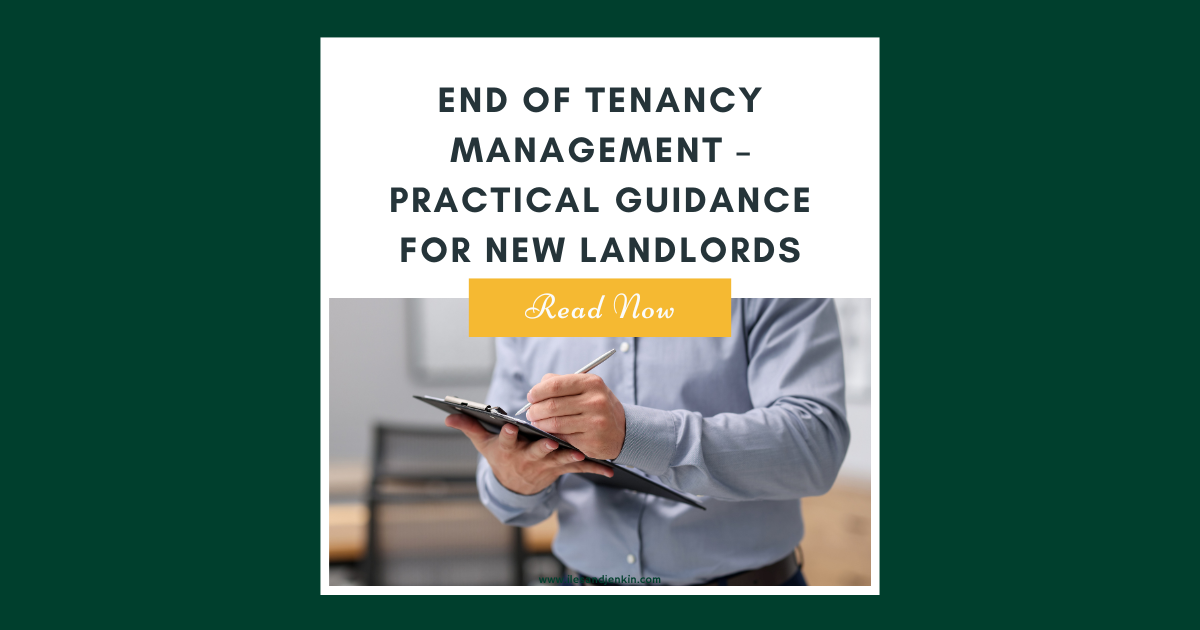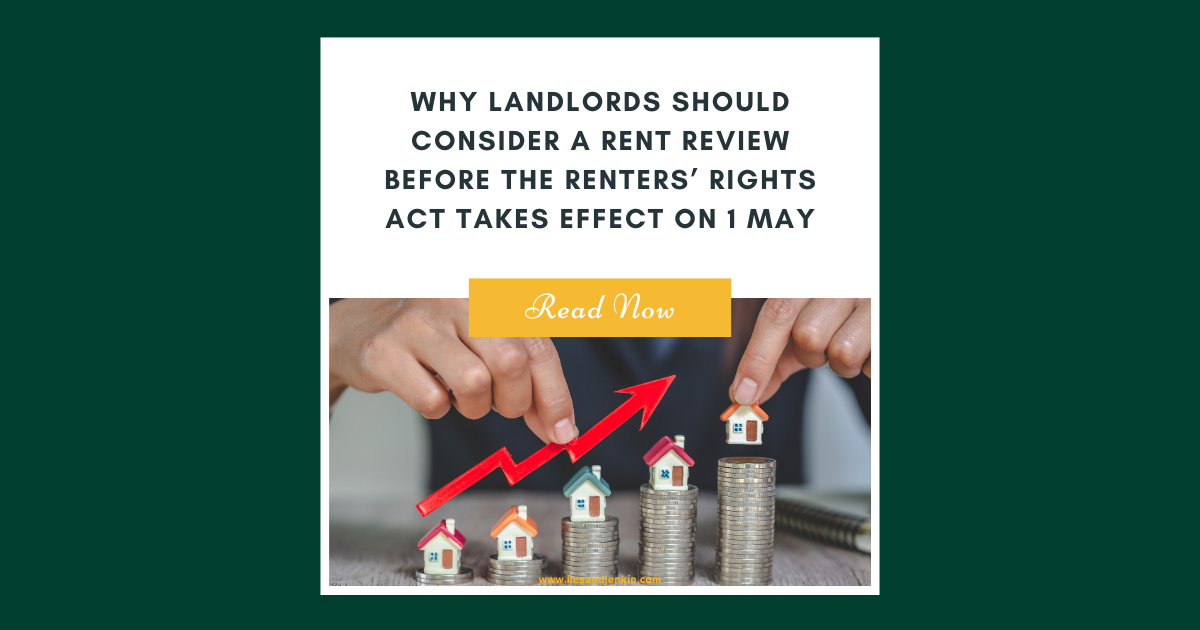Disrepair Claims: What Every Landlord Needs to Know (and How to Protect Yourself)
When a tenant reports an issue and feels it hasn’t been resolved, they may start a formal legal process known as a Disrepair Claim. Whilst this is not a commonly used process (usually saved for serious breaches), with the Renters’ Rights Bill on the horizon, this area of tenancy law is becoming even more important - and landlords who aren’t prepared could find themselves facing delays, legal costs, or even being unable to regain possession of their property.
Here’s what landlords need to know.
🔧 What Is a Disrepair Claim?
If a tenant believes you haven’t met your legal obligations to maintain the property, they can begin the Pre-Action Protocol for Housing Disrepair. This is a formal process designed to settle disputes before going to court.
But here’s the key: the protocol only applies once the tenant has already raised the issue - and believes you’ve failed to act. If you ignore their concerns or can’t prove that you responded appropriately, you could be on the back foot from the start.
📝 The 4 Key Stages of a Disrepair Claim
1. Letter of Claim
The tenant (often via a solicitor) sends a formal letter outlining:
The defects and how they’ve affected them
A history of any complaints made
Any proposed use of expert reports
A request for repair records and related documents
2. Landlord Response
You must reply within 20 working days, including:
Any repair records or correspondence
A response to the proposed use of an expert
💡 A clear, timely, and detailed response shows you’ve acted reasonably - and can stop the case from escalating. A vague or delayed reply could make it look like you're hiding something, even if you're not.
3. Expert Inspection
If both parties agree, a joint expert (such as a surveyor) may inspect the property and produce a report outlining:
The condition of the property
A schedule of any necessary repairs
This step can reduce legal costs and help resolve disputes early.
4. Agreement or Escalation
Once the report is in, the landlord and tenant can negotiate a solution. If they disagree on who’s responsible (e.g., is mould due to damp walls or poor ventilation?), then the tenancy agreement becomes crucial.
If no resolution is reached, the case can go to court - though the outcome isn’t always predictable.
⚖️ Real Case: Tenant Ordered to Pay £8,000
In one recent case at York County Court, a tenant brought a disrepair claim without first reporting the issue. The judge dismissed the case and ordered the tenant to pay £7,964.75 in legal costs - all because the landlord had kept clear records showing they were never notified of a problem.
👉 Lesson for landlords: Document everything. Keep copies of emails, inspection records, contractor invoices, and repair logs.
🔍 Why Disrepair Handling Matters More Than Ever
With the Renters’ Rights Bill coming soon, landlords will lose the ability to use Section 21 and instead must rely on Section 8 to regain possession. But if a tenant has previously raised disrepair and it wasn’t properly addressed, it could weaken - or even derail - your case.
The Bill also introduces a new Privately Rented Property Portal. Landlords will need to register and provide:
Property and ownership details
Evidence of compliance with repair and safety laws
Records of enforcement action, such as improvement notices
This means you’ll need to show - at a glance - that you’ve acted responsibly at every stage.
✅ How to Stay Protected
To reduce the risk of disrepair claims and stay compliant with upcoming legislation:
Respond quickly to all repair requests
Keep detailed records of repairs, communications, and inspections
Update tenancy agreements to clearly define tenant vs. landlord responsibilities
Offer clear guidance to tenants on how to report and escalate maintenance issues
🛡 Already With Iles & Jenkin? You're Covered.
If your property is already managed by Iles & Jenkin, we’re ahead of the curve. We already:
Track all communications and repairs
Maintain fully compliant documentation
Provide clear processes for tenants to report concerns
But if you’re managing your property yourself - or using an agent you’ve lost confidence in - it’s time to talk to us.
We’re confident that the upcoming legal changes will have minimal impact on our landlords because we’ve built our service around compliance, transparency, and proactive property management.
📞 Want to know if your current setup protects you from disrepair claims?
Call us today on 01934 512537 or email lettings@ilesandjenkin.com for a free, friendly chat about how we can help.



 By
By 
 posted by
posted by 


Share this with
Email
Facebook
Messenger
Twitter
Pinterest
LinkedIn
Copy this link